© 2026 ALLCITY Network Inc.
All rights reserved.

With the Denver Broncos brass traveling around the country to scout draft-eligible quarterbacks, despite having just signed Case Keenum, and Todd Davis on the podium after a big pay raise, you’d be forgiven if the signing of veteran free agent cornerback Tramaine Brock went over your head.
The signing of Brock might have been underwhelming after Aqib Talib was traded away, as Brock was inked to a low-key one year $4 million contract, adding depth to a suddenly shallow cornerback group in Denver.
However, the former Viking and Niner was a high-end starter only a mere two seasons ago and is still only 29 years old. It’s no wonder then that two of the NFL’s best defensive backs coaches—head coach Vance Joseph and defensive coordinator Joe Woods—decided to pull the trigger on Brock, to see if he could add some veteran stability.
As we do at BSN, we had to go back to the tape to see what the latest free agent signing brings to the table.
Strengths
Going back to Brock’s 2016 tape with the San Francisco 49ers—the last time he saw significant snaps—the first thing that stands out is his long speed. That’s no exaggeration as the nine-year veteran blanketed some of the NFL’s fastest receivers on a consistent basis.
Don’t just take it from us, watch as he ran stride for stride with Arizona Cardinals receiver Jaron Brown—who ran a 4.29 back in college—dominating his deep route to get a pass deflection (Brock is the RCB here, on the near side of the field).
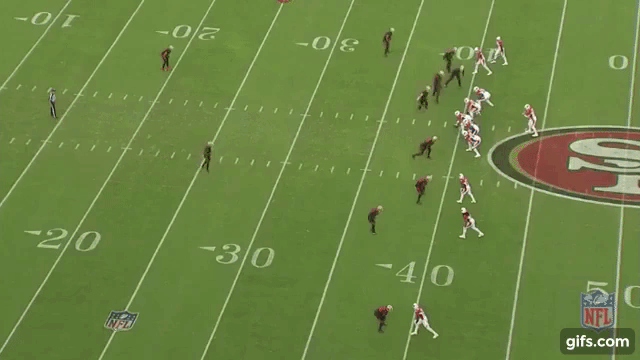
Playing press on Brown, you can also see Brock’s physicality with his hands and his superb leaping ability. That added to his fine ball skills, make him a really talented man corner who can shadow just about anyone down the sideline.
In that same Week-5 matchup with the Cardinals, on another play, Brock did the same to J.J. Nelson—he of the 4.28 40 (Brock is the LCB on this play on the far side of the field).
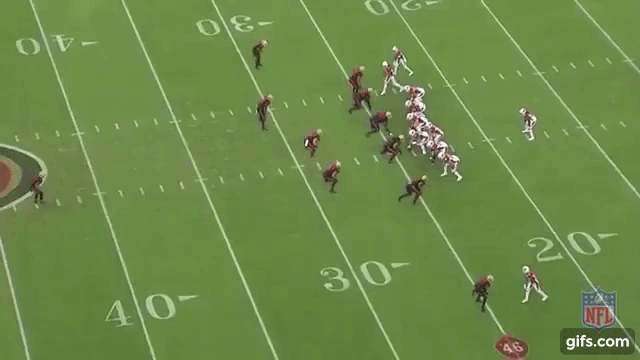
This time, in off coverage, Brock’s fluid hips and recovery speed were again on display, showing the same eye discipline to make a play on the ball.
At his best, that’s who Brock is; a physical, speedy corner that can be trusted out on an island down the sideline. His past three seasons with the Niners, in which he appeared in 15-plus games, he had double-digit passes defended each year.
In general, Brock is a superb athlete and has lived off of that athleticism throughout his career. His leaping ability also stands out covering bigger receivers.
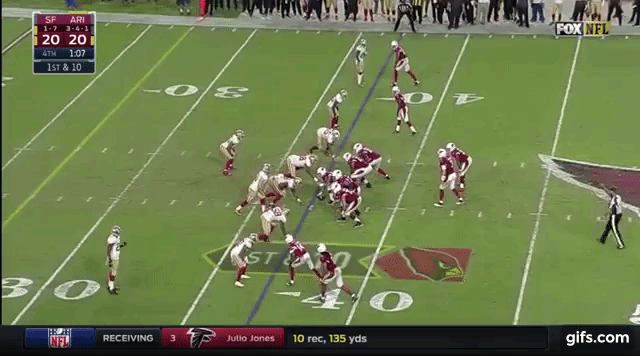
The veteran cornerback is also a sound and physical tackler, who’ll attack low and wraps up well. A big plus in the Broncos defense, where having reliable tacklers on the outside has been crucial in playing aggressively without getting burned by poor tackling outside.
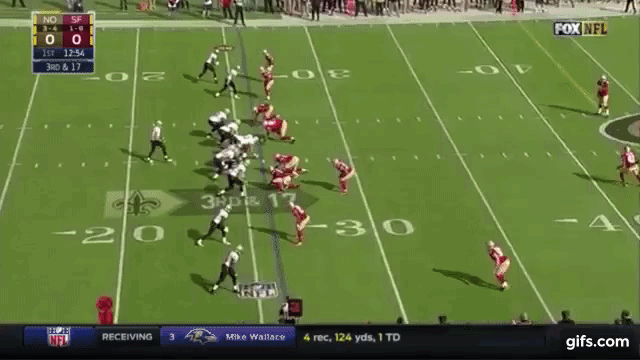
Brock has been very productive when he’s seen the field, racking up consecutive 50-plus tackles in his last two seasons in the Bay and also adding nine interceptions in his last three years where he regularly saw the field.
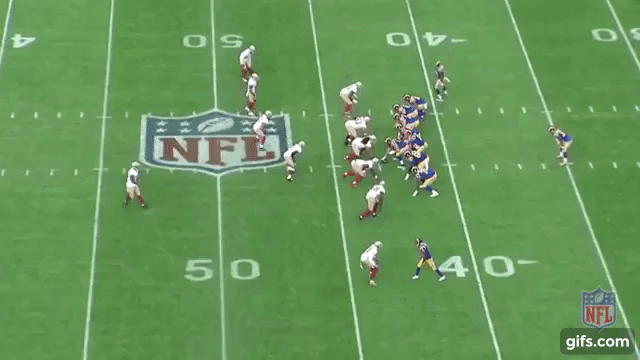
Weaknesses
There’s a reason Brock was available for such a low fee, though, at a coveted highly priced position, too. Aside from his year of inactivity with Minnesota, while watching the tape, it’s evident that the Belhaven College product is at his best down the sideline.
However, Tramaine is much better chasing after receivers than he is attacking downhill. His ability to dissect plays pre-snap is underwhelming, as misdirection plays can hurt him. His slow reactions to crossers, or reading pick plays will force him to get burned on underneath routes as well.
He’s just not as his best in zone because of all this—unless it’s a cover-3 scheme where he’s solely responsible for covering the boundary. His lateral quickness and change of direction aren’t at the level of his long speed. With a simple assignment, knowing he only has to worry about chasing one receiver, he’s much better than having to read plays. His IQ isn’t elite by any means.
Brock also plays on the edge with his physicality but mostly does a good job of tethering on that edge and staying fairly penalty-free. In addition, while he gets lots of pass deflections, his hands aren’t elite, and he doesn’t haul in nearly as many potential interceptions as he could.
Considering how reliant he is on his supreme athletic skills, his long history of lower body injuries is particularly concerning. Especially hamstring injuries that affected him throughout his career, dating back to 2014.
In conclusion
Brock was a high-level starter for the Niners but was cut due to a domestic violence charge—that has since been dropped—allowing him to be reinstated by the NFL.
However, since then, he hasn’t seen the field as much. Part of his limited play in Minnesota with the Vikings was being buried behind a deep cornerback rotation with two high-end first rounders—Xavier Rhodes and Trae Waynes—in addition to talented youngster Mackensie Alexander and veteran Terence Newman.
Though it’s also legitimate to wonder if part of Brock being limited to only 51 snaps last season was him losing a half step, which would severely limit his value. For now, let’s give him the benefit of the doubt as he started the year off with a groin injury that simply might’ve forced him to never get back into the rotation.
While he’ll be the Broncos third cornerback, our film room would suggest that Brock will be used outside in Denver’s scheme, where he’ll fit nicely, thus forcing Chris Harris Jr., Bradley Roby, or Justin Simmons to cover in the slot.
Given his low-risk contract, this seems like a worthwhile gamble on a potential third cornerback who could give some much-needed security in front of unproven youngster Brendan Langley—the former collegiate receiver who’s still figuring things out at corner.
Comments
Share your thoughts
Join the conversation



